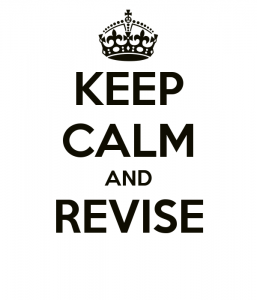This semester in Professor Susan Bay’s Advanced Legal Writing course, Rhetoric and Persuasion, our class discussed the means of persuasion: logos, pathos and ethos. Ethos immediately intrigued me because I could not grasp how to employ ethos in brief writing. One legal scholar, Professor Kirsten K. Davis, explains ethos as “classically considered the ‘persuasive force of a person’s character.’” In one word, ethos can be defined as credibility. Reading articles from legal scholars like Professor Davis helped, but I still was missing a connection. And then it occurred to me that I had been familiar with credibility, just in a different branch of advocacy: oral arguments.
My understanding of oral arguments stems from my participation in Moot Court. I am proud to be a Moot Court enthusiast. I did not know about it until Professor Rebecca Blemberg recommended that my 1L Legal Writing, Analysis and Research classmates and I attend the semi-finals and finals of the Jenkins Honors Moot Court Competition. I was awestruck by the oralists. I vividly recall standing with Professor Blemberg, telling her that I could never recite law or formulate an oral argument the way those students did. To my great surprise, one year later, I competed in the Jenkins Competition.
Through participating in the Appellate Writing and Advocacy course as a student and as a student coach, the Jenkins Competition as a competitor and a student coach, and the National Moot Court Competition as a competitor, I have received and shared advice about how to be a credible advocate at the podium. Here are some ideas about credibility that transcend oral arguments, and that you can apply to your own brief writing.
Respect Your Audience.
Respecting your audience is one way to earn credibility. Just as an oralist does in oral arguments, use proper form when addressing courts in your brief (i.e. the court you are writing to is written as “This Court should,” and a court you are writing about should be written as “The court in Smith”). You can also show respect for your reader and earn your reader’s respect by being respectful to others. Address strong counterarguments or, if you are responding, then the opposing counsel’s strong arguments, and provide specific reasons why those arguments are flawed whether it be because of logic, fact, or policy.
 I had a student a couple of years ago who described herself as a “one-sit wonder.” That is, in all of her previous schooling, she was quite adept at pounding out a more than serviceable paper in one sitting. Once she arrived in law school, she realized that style of writing was probably not going to work. (And, to be fair, it probably shouldn’t work in any other setting, either, but I do realize that it’s the way most students do write.)
I had a student a couple of years ago who described herself as a “one-sit wonder.” That is, in all of her previous schooling, she was quite adept at pounding out a more than serviceable paper in one sitting. Once she arrived in law school, she realized that style of writing was probably not going to work. (And, to be fair, it probably shouldn’t work in any other setting, either, but I do realize that it’s the way most students do write.)